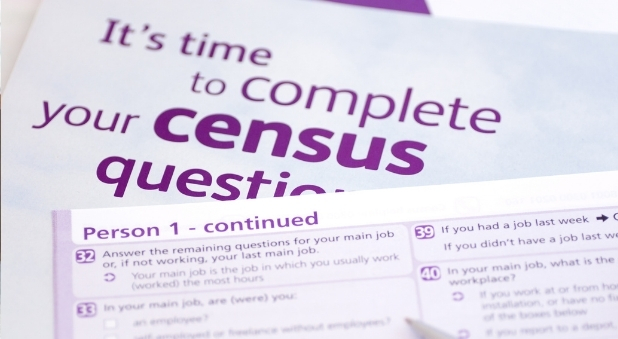One in 10 Australians who said they were non-religious in the 2016 Census said they were Christian five years later.
That's not a statistic that we heard in media reporting of the Census results, which, if it mentioned religion at all, focused on the “no religion” category.
However, research company McCrindle has taken a deeper look at the official statistics as well as its own research in a report titled An Undercurrent of Faith: Australia's Renewed Relationship with Christianity.
Headline finding 1: One in ten with 'no religion' switch to Christianity
"We have used a little-known data set that's produced by the Australian Bureau of Statistics called the Australian Census Longitudinal Data Set," says McCrindle's Grant Dusting. "It was pointed out to us that means people's responses to [the] religion question would also be tracked over time. To our knowledge no one had done analysis on it.
“So, one of our headline findings was that, within the overall decline in Christian affiliation in the last Census, it was actually over 784,000 Australians who, in the 2016 Census, said ‘I have no Religion' [that], five years later, in the most recent Census, said ‘I'm a Christian’.
“We often hear a particular narrative in the media and public discussion. It's a topic that doesn't get a lot of nuance, but what that headline figure means is one in 10 Australians who in the 2016 census said that they were non-religious said that they were Christian five years later. That's a lot of people... so, we wanted to understand who those people are and what is happening.”
Headline finding 2: They are not who you think they are
As they dug deeper, the results from the Census data and McCrindle’s research show the Australians who are returning to Christianity may not be who people expect.
"One of the narratives we sometimes hear is that Christianity in Australia is being propped up by immigration,” Mr Dusting says. “But actually, what the data shows is that the recent converts to Christianity in Australia are less likely to be migrants than the average population.
“So, what is happening is that there's a large proportion both in total number, but also as a proportion, of older Australians [aged] 55+ who are coming to Christianity either for the first time or coming back to Christianity. That was a standout. There's a lot of older Australians who are coming to Christianity within that large figure I quoted before."
Headline finding 3: Two thirds have a positive attitude towards Christianity
McCrindle has been tracking faith and belief since 2011 in what it calls a “faith barometer”.
"We know that people might identify with a religion or not,” Mr Dusting says. “But we want to understand even for those who don't, how do they feel towards... Christianity? Although the headline figure in the Census is that there [are] less people identifying as Christian, the proportion of Australians who say they're either Christian or warm towards Christianity has actually remained steady. It's around two-thirds of Australians who say that they either consider themselves Christian or are warm towards Christianity.
“So, that gives us a bit more nuance to the discussion about how Australians feel towards, and their relationship with, Christianity.”
Headline finding 4: An opportunity awaits
The research company hopes that by clarifying the issues and statistics, Christian leaders as well as everyday people in the pews will see the opportunities.
"We've asked people who've moved away from Christianity, what were the reasons that you moved away?" Mr Dusting says. "For a lot of people, it's less about their beliefs having changed and more a dissatisfaction with how they've seen Christianity practiced.
“I think there's an opportunity and a challenge there for all rank-and-file Christians… to say, well, actually, it's on those people who identify as Christians to say, ‘How am I living out the Christian message in its truth and beauty and goodness?’ There's an opportunity there, because people and society – they're looking to see that lived out genuinely."

















